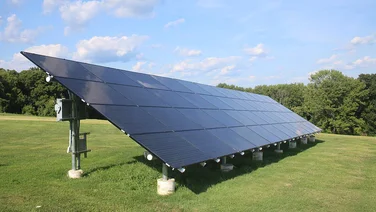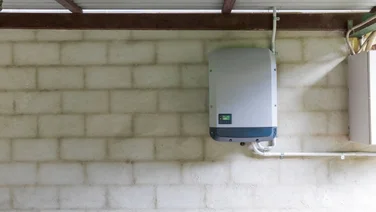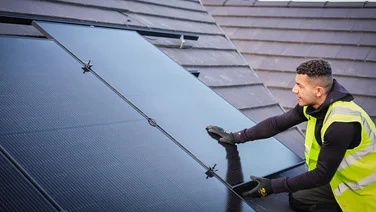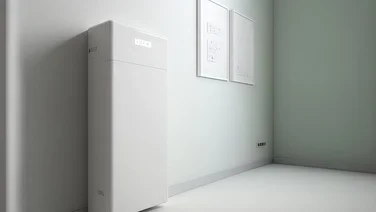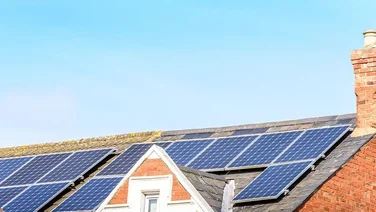We receive a small fee from trusted installers when you request a quote through our site. This helps us keep our content independent, well-researched and up to date – Learn more
- ECO4
- ECO4 Flex
- The Great British Insulation Scheme
- The Boiler Upgrade Scheme
- The Warm Homes Discount
- The Winter Fuel Payment
- The Home Upgrade Grant (now discontinued)
- The Smart Export Guarantee
- The Disabled Facilities Grant
- The Electric Vehicle Homecharge Scheme
- Grants from your local council
- Home improvement grants for Scotland
- Home improvement grants for Northern Ireland
- Home improvement grants for Wales
- Expired grants
- Summary
- Some grants can give you free insulation and heating systems
- The Boiler Upgrade Scheme runs until March 2028
- The Warm Homes Discount is only available between March and October
- The Home Upgrade Grant (now discontinued) was aimed at low-income households in England
- Warm Homes Nest is intended to reduce fuel poverty in Wales
You should be able to have a warm home and electricity, without having to break the bank each month.
Fortunately, there are plenty of government grants that can help you make this a reality, even if you’re struggling financially.
Some grants can give you free insulation and heating systems, while others provide tens of thousands of pounds in interest-free loans, so you can make all the eco-friendly home improvements you’ve always wanted.
Below is a table offering an overview of all the current grants, schemes and loans available, but in this guide, we’ll walk you through – in more detail – all the best grants for your household, no matter your situation or where in the UK you live.
One of the most popular questions we get asked is ‘how much are solar panels?‘ However, our page on solar panel costs should give you everything you need to know.
| Name of scheme | What it covers | What it’s worth | Who can apply |
|---|---|---|---|
| Energy Company Obligation (ECO4) | – Repairs & replacements – Heating systems – Insulation | Up to £48,000 | Low-income and vulnerable households |
| Great British Insulation Scheme | – Insulation – Smart heating controls | Up to 75% of the costs (£1,418 on average) | Low EPC rating or low council tax band |
| Boiler Upgrade Scheme | – Air and ground source heat pumps – Biomass boilers | £7,500 | Homeowners and small business owners in England and Wales |
| Warm Homes Discount | Electricity or gas bills | £140 | People in, or at risk of falling into fuel poverty |
| Winter Fuel Payment | Heating bills | £250-£600 | People born before 27 September 1956 & social security recipients |
| Home Upgrade Grant | – Insulation – Heat pumps – Solar panels – Double glazing | Up to 100% of the costs | Applications have now closed. This has been replaced with Warm Homes Local Grant. |
| Smart Export Guarantee | Excess renewable energy | £159 on average | Renewable energy microgenerators |
| Disabled Facilities Grant | Accessibility measures (more info below) | – England: up to £30,000 – Wales: up to £36,000 – Northern Ireland: up to £25,000 | People with a disability or other extra needs |
| Electric Vehicle Homecharge Scheme | Home electric vehicle charging points | Up to £350 | Renters and people who own a flat |
| Local council grants | Various measures | Depends on council | More info below |
| Home Energy Scotland Grant and Loan | Improvements and renewable systems or connections | Up to £38,500 in Interest-free loans | Homeowners in Scotland |
| Affordable Warmth Grant | Heating and insulation measures | Up to £10,000 | Low-income homeowners and renters in Northern Ireland |
| Boiler Replacement Scheme | New gas, oil, or wood pellet boilers | Up to £16,000 | Owners of old boilers in Northern Ireland |
| Home Improvement loans | Replacements or repairs to your home | Up to £35,000 in interest-free loans | Homeowners in Wales |
| Nest | – New boilers – Insulation – Draught-proofing – Heat pumps | Up to £15,700 | Low-income and vulnerable households |
ECO4
In 2022, ECO4 was launched. The scheme is the government’s fourth iteration of its Energy Company Obligation (ECO) scheme in Great Britain, and aims to help tackle fuel poverty and reduce carbon emissions.
Running until 31 March 2026, ECO4 requires medium and large gas and electricity suppliers, like British Gas, EDF Energy, Ovo, Scottish Power and SSE, to help households with energy efficiency measures, like solar panels, heat pumps, insulation and boiler repairs.
If you want to know how much a heat pump will set you back, take a look at our heat pump cost calculator.
It isn’t just limited to these companies, however. Any supplier with more than 150,000 customers is expected to deliver energy savings to customers who are on certain benefits or in fuel poverty.
They are required to improve households by a certain amount, depending on their Energy Performance Certificate (EPC) rating – and they have to help a minimum amount of the lowest-ranked homes. Band F and G homes, for example, must be improved to at least a D rating.
Currently, there is no set amount you can receive with ECO4, since it’s dependent on your home’s needs. The level of funding, retrofit products and installers are dependent on your energy company.
How do I know if I qualify for ECO4?
You are eligible for the ECO4 scheme if you meet the following requirements:
- Your home has a low EPC rating. For all rented properties, a rating of ‘E’ or above is required to all existing tenancies following an update to the Minimum Energy Efficiency Standards in 2020.
- Your home has an existing electric heating system
- You are not living at private domestic premises and are a member of the Help to Heat Group. If you do not own your home, you must have permission from your landlord, social housing provider and/or management company
Ofgem reported that membership of the Help to Heat Groupe entails receipt of at least one of the following benefits of the relevant income requirements:
- Income-based Jobseekers Allowance
- Income-related Employment and Support Allowance
- Income Support
- Pension Credit Guarantee Credit
- Working Tax Credit and Child Tax Credit. Please note these are only available if you currently receive this, otherwise these have now been replaced by Universal Credit.
- Universal Credit
- Housing Benefit
- Pension Credit Savings Credit
Remember, though, solar panels aren’t a guarantee with ECO4. Your chosen energy supplier might decide that installing a biomass boiler or connecting you to a District Heating Network is a better option.
Is there anything that will stop me from qualifying for ECO4?
Unfortunately, if you receive the following payments or allowances, you won’t be eligible for ECO4:
- Armed Forces Independence Payment
- Attendance Allowance
- Carer’s Allowance
- Constant Attendance Allowance
- Disability Living Allowance
- Industrial Injuries Disablement Benefit
- Personal Independence Payment
- Severe Disablement Allowance
- War Pensions Mobility Supplement
ECO4 Flex
If you don’t meet the above criteria, you could still be eligible to receive funding via the Local Authority and Supplier Flex (ECO4 Flex) scheme. It’s also known as the LA Flex scheme.
According to Ofgem, ECO4 Flex or LA Flex allows local authorities to widen the eligibility criteria. Contact your local council and ask for their help, as 50% of the scheme’s £4bn in funding will be given out this way.
There are several eligibility criteria you must meet to be considered from living in an energy inefficient property and fall into the following categories:
- Be on a non-pre-payment and have been in fuel debt for more than 13 weeks
- Be on a pre-payment meter and have self-disconnected
- Have received supplier discretionary/friendly credit within 13 weeks
- Be in a debt repayment plan with your energy supplier
- Or be repaying your fuel debt through third party deductions
To find out more information on the ECO4 or LA Flex scheme, and all the schemes available to improve your home, check out our guide: How to get UK government grants and funding for solar panels in 2024.
ECO4 will aim to add to the 2.4 million homes that suppliers have helped so far – but the government has said it will introduce a buy-out mechanism soon, allowing suppliers to pay their way out of this obligation, so take advantage while you can.
The Great British Insulation Scheme
The government introduced a further extension of the ECO4 scheme with a new grant called the Great British Insulation Scheme, previously known as ECO+.
The government claimed the £1bn scheme will cover up to 75% of the costs of either loft insulation or cavity wall insulation, and possibly smart heating controls, with households paying the rest of the costs.
You can find out more about the scheme by visiting our guide, ECO+: Everything you need to know.
The Boiler Upgrade Scheme
The Boiler Upgrade Scheme (BUS) began in April 2022 and is set to run until March 2028. The scheme gives homeowners the opportunity to receive a £7,500 discount on a new air or ground source heat pump.
In February 2024, the number of applications for the scheme were up by 75% compared to February 2023. In total since the scheme’s conception, there have been 36,741 applications.
These figures follow changes to the scheme where families will no longer have to install cavity wall or loft insulation, giving greater choice on home improvements and potentially reduce the costs involved by approximately £2,500.
Other changes include what can be applied for. Installers can apply for:
- £7,500 off the cost and installation of an air source heat pump
- £7,500 off the cost and installation of a ground source heat pump, including water source heat pumps
- £5,000 off the cost and installation of a biomass boiler
The reason for this was to help households spread out the cost of changes at a pace that works for them. Until 2025, there is £450m of grant funding available.
How do I know if I’m eligible?
Households must meet the following criteria to take advantage of the BUS:
- You’re a homeowner or small business owner
- Your property is in England or Wales
- Your building has been issues an Energy Performance Certificate (EPC) in the past 10 years
- You follow one of the three EPC scenarios listed below
There are three paths to an eligible EPC, so make sure to follow at least one of the following:
- Your EPC has no recommendations for loft or cavity wall insulation
- Your EPC does have a loft or cavity wall insulation recommendation, but you fulfil the recommendation between applying for the BUS and getting a heat pump installed
- Your property has an EPC or insulation exemption – for example, if you own a listed building
If your property is a custom-built home, it won’t need an EPC to qualify.
The Warm Homes Discount
The Warm Homes Discount is only available between March and October where households can get £150 as a one-off discount on your electricity bill. At the time of writing, this scheme is currently closed.
The discount might be applicable to your gas bill, if your supplier provides both types of energy. Contact your supplier to find out if the discount can be applied.
Unlike some of the other grants and schemes we’ve covered, this scheme is a discount on your energy bills. You won’t receive a direct payment and it’s not clear when you will receive your discount, but it will be applied to your bill by 31 March 2025.
The discount is available to those in Scotland, if you’re on a low income, so contact your energy supplier directly if this applies to you.
You are eligible for the discount if you fall into one of the following categories:
- You receive Pension Credit Guarantee Credit
- You are in, or at risk of falling into fuel poverty
If you receive Pension Credit Guarantee Credit, you should automatically get £150 off an energy bill. If you’re in or nearly in fuel poverty, contact your supplier about the discount.
The Winter Fuel Payment
If you were born on or before 25 September 1957, the government may give you between £250 and £600 to help you with your heating bills, thanks to the Winter Fuel Payment.
You’ll automatically receive this payment in November or December 2024 if you receive any of the following benefits:
- State Pension
- Pension Credit
- Attendance Allowance
- Personal Independence Payment (PIP)
- Carers Allowance
- Disability Living Allowance (DLA)
- Income Support
- Income-related Employment and Support Allowance
- Income-based Jobseekers Allowance
- Awards from the War Pensions Scheme
- Industrial Injuries Disablement Benefit
- Incapacity Benefit
- Industrial Death Benefit
The only scenario where you may need to apply for the payment is if you have lived outside of the UK. You might also need to claim if you’ve not received the Winter Fuel Payment before or have deferred your State Pension since your last payment.
How to make a claim
Claiming for The Winter Fuel Payment is quite simple. You can apply for the payment by post, which is open from September, or by phone, open from October.
To claim by post, UK residents need to fill out this form and send it to the following address:
Winter Fuel Payment Centre
Mail Handling Site A
Wolverhampton
WV98 1LR
To claim by phone, you’ll need to call the Winter Fuel Payment Centre on 0800 731 0160.
Before you call, you will need to know your National Insurance number, your bank details and the date you were married or entered into a civil partnership (if applicable).
If you want to know how much new windows might set you back, look at our double glazing cost calculator
The Home Upgrade Grant (now discontinued)
The Home Upgrade Grant (HUG) was a government-backed program for low-income households in England that aren’t connected to the gas grid and have an Energy Performance Certificate (EPC) between D and G. New applications for this grant are now closed, and the grant has been discontinued.
Whilst active, eligible households will be able to receive measures including insulation, draught proofing, heat pumps, solar panels and batteries, double glazing and solar water heaters.
Low-energy lighting, biomass boilers, electric heaters, hot water cylinders and heating controls were also on the list of permitted improvements. The grant has since been replaced with the Warm Homes Local Grant.
The Smart Export Guarantee
The Smart Export Guarantee (SEG) isn’t a grant, but it has the same effect of saving money – useful for the 82% of people who’ve adjusted their behaviour at home in the past few years to cut their energy bills, according to our latest National Home Energy Survey, published in 2023.
You can qualify for the scheme if you generate power with any of the following:
- Solar panels
- Wind
- Micro combined heat and power
- Hydro
- Anaerobic digestion
Suppliers must pay you any amount above zero for an additional energy used.
Octopus Energy, for example, enables homeowners to earn a flat rate of 4.1p per kWh for every unit of power exported. However, its Intelligent Octopus Flux scheme can see rates of up to 29.3 per kWh.
How many people have used it?
The launch of the SEG in January 2020 compelled energy suppliers with more than 150,000 customers to pay households for the renewable energy they export to the National Grid.
According to the latest Ofgem report, 2023 saw 92,946 installations with a combined capacity of of 495,981 kW registered to one of the available tariff. This is an increase on the 34,020 installations made in 2022, with a combined total of 155,755 kw.
Ofgem also reports:
- Solar PV made up more than 99.9% of installations registered (92,916) and installed capacity (495,832 kW) on the SEG in 2023. There were 30 installations for other technology types, 23 micro-combined heat and power (micro-CHP) and seven wind.
- In SEG last year, payments to registered installations totalled £7.19m and 77.3 Gwh of low-carbon electricity export was recorded. This is enough to make approximately 1.85 billion cups of tea and is a significant increase on the £1.66m in payments made and 24.4 GWh exported in SEG 2022.
The Disabled Facilities Grant
Your local council can give you a grant to adapt your home, if you are or live with a disabled occupant.
Check who your local council is, then apply using your council’s website.
Changes can include:
- Wider doors
- Ramps
- A stairlift
- A downstairs bathroom
- A heating system that better suits your needs
- Heating or lighting controls
To be eligible for the scheme, you must meet the following requirements:
- Be physically disabled
- Have a learning disability
- Have age-related needs
- Have autism
- Have a cognitive impairment, like dementia
- Have a progressive condition, like motor neurone disease
- Have a terminal illness
- Have a mental health condition
If you receive the Disabled Facilities Grant or apply, any benefits you currently receive won’t be impacted.
The Electric Vehicle Homecharge Scheme
The Electric Vehicle Homecharge Scheme was launched in April 2020 for homeowners – but from April 2022 onwards, it’s only available to renters and flat owners.
If that applies to you, you can get 75% off the cost of buying and installing a home charger for your electric vehicle, up to £350.
Just make sure you:
- Own one of the models on the eligible vehicles list
- Are the vehicle’s primary owner
- Can prove you already have an eligible vehicle, or have purchased one that will be delivered within four months of the charger’s installation date
If you rent or own a flat and want to start using renewable electricity, you might also be interested in our Guide to solar panels for flats.
Grants from your local council
Many local councils around the UK can offer additional grants for different reasons.
For example, the Bournemouth, Christchurch and Pool Council offer a cavity wall and loft insulation grant to homeowners and renters who are vulnerable, on a low-income, or have health risks.
In Newcastle, you can apply to the local council’s Sustainable Warmth scheme for a grant to install improvements including loft and wall insulation, heat pumps and solar panels.
If you live in London and are vulnerable or over 60, you might be able to receive between £5,000 and £25,000, to make heating, insulation and ventilation improvements to your property.
Some councils around the UK are also offering to install solar panels onto council houses for a discounted price – but this depends on the amount of funding the borough has. You can find out more about this on our page: Can you put solar panels on your council house?
Home improvement grants for Scotland
There’s only one government grant for home improvements available to people in Scotland – but it’s one of the most generous, wide-reading schemes in the UK.

Home Energy Scotland Loan and Grant
Since launching in May 2017, the Home Energy Scotland Grant and Loan has helped thousands of homes buy energy-efficient measures and renewable systems.
Grant funding for energy efficiency improvements is up to 75% of the combined cost of the improvements, up to the maximum grant amount of £7,500 or £9,000 if your home qualifies for the rural uplift. Similarly, for new heat pumps, the remainder of funding requested can be taken up as an option interest-free loan.
A grant of £2,500 is available for high heat retention storage heaters, if taken as part of a package of measures.
If you don’t qualify for the loan, the government offers interest-free loans. The amount you can borrow depends on what improvement or installation you want. The Scottish government groups them into two types: energy efficiency improvement (and secondary improvements) and renewables systems.
What if I don’t want a loan?
You can now also apply for grant funding without taking out a loan. A rural uplift is also available to provide extra support to rural and island homes, which can face increased costs to install home improvements.
The rural uplift is available to households in remote rural and island areas, as well as off-gas accessible rural areas. Advisors will be able to inform you if your property is eligible for this uplift and their application form will assess this based on your postcode.
Energy efficiency improvements
The following amounts apply to each improvement:
- Solid wall insulation: Up to £10,000 (£7,500 grant plus £2,500 optional loan)
- Electric heating: Up to £5,500 loan (£2,500 grant available for high heat retention storage heaters when installed as part of a package of measures)
- Glazing: Up to £8,000 (no grant available)
- Insulated doors: Up to £4,500 (no grant available)
- Flat roof or room-in-roof insulation: Up to £4,000 (£3,000 grant plus £1,000 optional loan)
- Loft, floor or cavity wall insulation: Up to £2,000 (£1,500 grant plus £500 optional loan)
Funds are allocated on a first-come, first-served basis, which is reserved once you have received a written loan offer.
You can also borrow up to £500 per improvement, which includes up to £375 grant, for secondary improvements and up to £600 (£450 grant) for heating controls. These secondary improvements funding is not available on its own, but as a combination with one of the energy efficient improvements or renewables systems.
Renewables systems
The following amounts apply to these systems:
- Heat pumps (either air source to water, ground source to water, water source to water): £15,000. This is a £7,500 grant, plus £7,500 option loan, or £9,000 grant plus £7,500 optional loan if the household qualifies for the rural uplift
- Hybrid heat pumps (air to water): £15,000. Funding is only available for the heat pump component of the system, which must meet MCS standards to qualify
- Solar PV panels: £6,000 (£1,250 grant plus £4,750 optional loan). Funding is only available for this measure if taken as a package of measures
- Solar water heating systems: £5,000 (loan only, no grant available)
- Hybrid solar PV/water heating systems: £5,000 (loan only, no grant available)
- Energy storage systems: £6,000. Funding only available for either a heat or electricity battery and if taken as a package of measures
- Wind or hydro turbines: £2,500 (loan only, no grant available)
- Biomass boilers or stoves (non-automated, non-pellet stoves or room heaters are not eligible): £15,000
- Connections to a renewable powered heat network scheme: £7,500
For more details on the loan and grant measures, visit the Home Energy Scotland website.
Home improvement grants for Northern Ireland
If you live in a low-income household or have an old boiler, you may be eligible for one or both of the two grants Northern Ireland offers.
Affordable Warmth Grant
If you’re a homeowner or private renter, have problems with your heating or insulation, and earn less than £23,000 per year, you may be able to get a grant of £7,500 – or up to £10,000 if your home requires solid wall insulation through the Affordable Warmth Grant.
The property must not be a holiday home, bed & breakfast or commercial establishment and grants are subject to the availability of funding.
You can apply by contacting the NI Energy Advice Service by calling 0800 111 44 55 or by emailing NIenergyadvice@nihe.gov.uk.
Boiler Replacement Scheme
If you earn less than £40,000 per year and have a boiler that’s at least 15 years old and runs on gas, LPG or oil, you may be eligible for the Boiler Replacement Scheme.
This grant enables you to replace your old boiler with a new, efficient gas, oil or wood pellet boiler.
Home improvement grants for Wales
There are two government grants for home improvements in Wales, and between them, they cover a huge number of households – so take advantage if you can.
Home improvement loans
If you’re struggling to pay for crucial replacements or repairs to your home, you may be able to access up to £35,000 in interest-free loans from the government.
Each local council in Wales creates their own eligibility criteria and asks for an administration fee of up to 15%, but it may well be worth it.
Just enter your postcode on the Welsh government website, and see what your council offers. Nest
This Welsh government scheme, Warm Homes Nest, attempts to reduce fuel poverty rates by helping low-income households to become more energy-efficient.
All you have to do is call Nest’s helpline on 0808 808 2244, and if you qualify, you are then assessed for your eligibility to receive a package of free home energy efficiency improvements.
Through Nest, you can get free eco-friendly improvements including a new energy-efficient boiler, wall and loft insulation, and draught-proofing – or even a heat pump.
The criteria for home improvements, according to gov.wales, are:
- A household member is in receipt of a means-tested benefit and the property is privately owned or rented with an indicative energy rating of E, F or G
- Or a household member is living with a health condition (in a D, E, F, G-rated privately owned or rented property) and in receipt of an income below defined thresholds.
The means-tested benefits that qualify for the scheme are:
- Child Tax Credit
- Council Tax Reduction
- Housing Benefit
- Income-based Jobseeker’s Allowance
- Income-related Employment and Support Allowance
- Income Support
- Pension Credit
- Universal Credit
- Working Tax Credit
The Nest scheme process for landlords
Nest works in partnership with Rent Smart Wales to ensure all private landlords are officially registered before being allowed access to support from the scheme for their rented properties.
Once this has been approved, a fully qualified assessor will:
- Visit the customer’s home to complete a full assessment
- Identify the most appropriate and cost-effective measures for the property
- Confirm the eligibility of the customer
A network of Wales-based installers provide the installation services under the management of the Nest team, and the program is designed for individual properties.
How is the scheme performing?
As previously mentioned, to qualify for the scheme, a member of your household must be living with a health condition.
Between July 2019 and March 2023, 25,261 households were assessed through this heath criteria. Of these, 47.2% (11,929) met the health condition and property criteria mentioned above and were referred for an income assessment, with just 27.1% (6,838) passing this.
Expired grants
Not all grants, schemes and loans work out, while others are simply upgraded to new ones that offer better benefits. Some of these expired include:
Summary
- There are several grants, schemes and loans available to help you improve your energy efficiency to help cut bills and reduce carbon footprint
- Homes in Northern Ireland, Scotland and Wales have their own options to help improve their homes, from the Home Energy Scotland Grant and Loan, Affordable Warmth Grant in Northern Ireland and the Boiler Replacement Scheme
- There is no scheme dedicated to specific areas only, but more generalised, broad grants and schemes to help improve all areas of energy efficiency
- Grants are often upgraded to better serve homeowners


